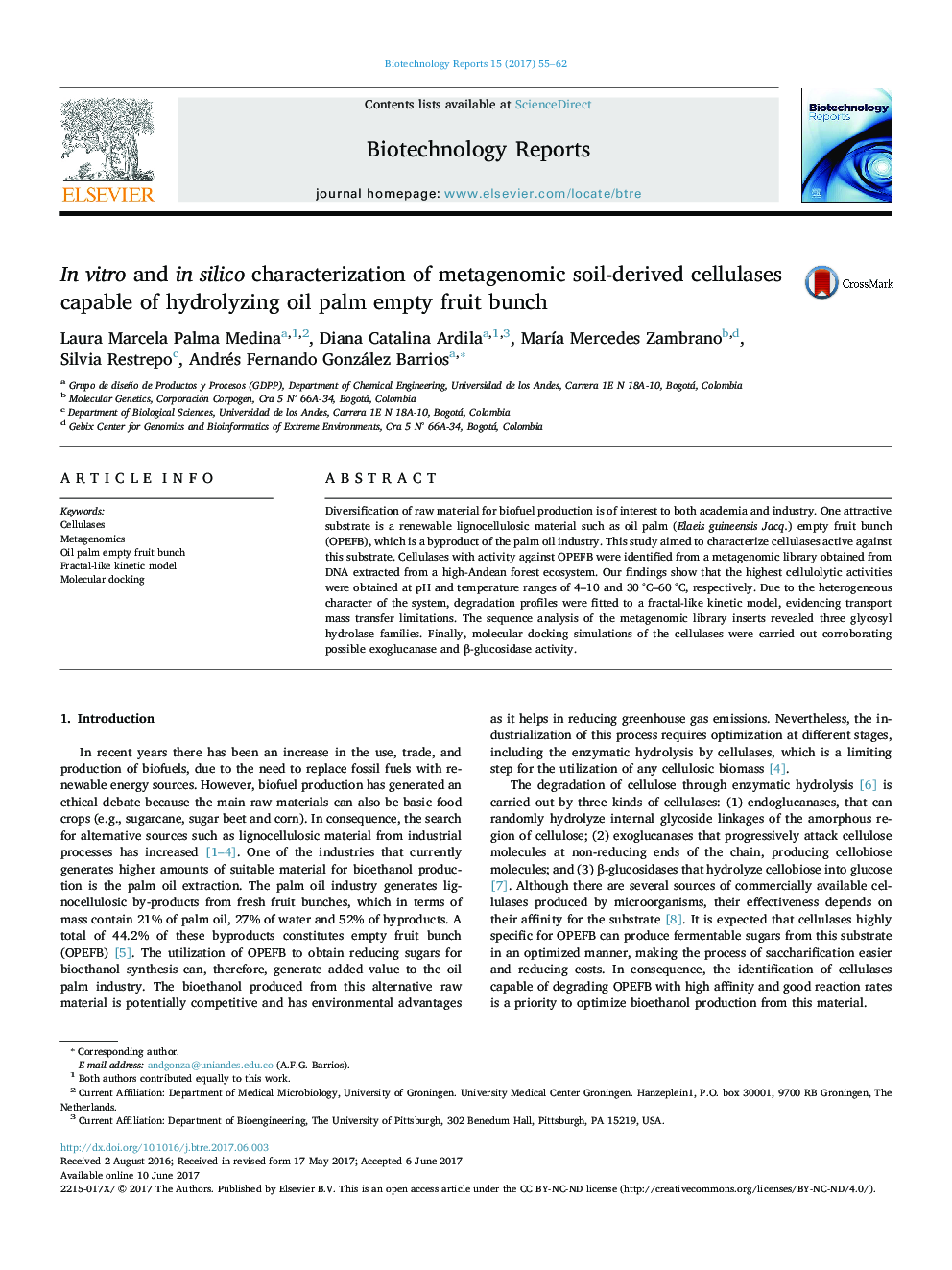| Article ID | Journal | Published Year | Pages | File Type |
|---|---|---|---|---|
| 5031766 | Biotechnology Reports | 2017 | 8 Pages |
â¢Identification of cellulases in metagenomic clones.â¢Characterization of the cellulases' activity on oil palm empty fruit bunch.â¢Use of homology modeling and molecular docking to characterize the enzymes.
Diversification of raw material for biofuel production is of interest to both academia and industry. One attractive substrate is a renewable lignocellulosic material such as oil palm (Elaeis guineensis Jacq.) empty fruit bunch (OPEFB), which is a byproduct of the palm oil industry. This study aimed to characterize cellulases active against this substrate. Cellulases with activity against OPEFB were identified from a metagenomic library obtained from DNA extracted from a high-Andean forest ecosystem. Our findings show that the highest cellulolytic activities were obtained at pH and temperature ranges of 4-10 and 30 °C-60 °C, respectively. Due to the heterogeneous character of the system, degradation profiles were fitted to a fractal-like kinetic model, evidencing transport mass transfer limitations. The sequence analysis of the metagenomic library inserts revealed three glycosyl hydrolase families. Finally, molecular docking simulations of the cellulases were carried out corroborating possible exoglucanase and β-glucosidase activity.
